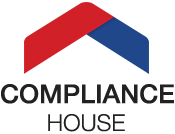Compliance House
Compliance & Accountancy
Compliance has its origins in Anglo-Saxon law. From this it can be concluded that compliance in America was already seen as a necessary regulation for the financial sector in the 1930s. However, within accountancy, compliance is a rather new concept. Literally, it means that the accountancy sector must comply with the laws and regulations that apply to the sector. It is ultimately the responsibility of the board or the owners of the organization to ensure that it is compliant. However, the compliance process must be organized. By appointing and assigning the tasks and focus areas related to compliance to a Compliance Officer, the person responsible for compliance has a good insight into the specific compliance aspects that are organized and safeguarded in the organization.
Curious about how your company is doing in the context of compliance and what Compliance House can do for you?
Please contact our specialists
Supervision
With the introduction of the Act on the Supervision of Accountancy Organisations (Wet Toezicht Accountantsorganisaties, WTA), accountancy organisations are under effective supervision. The reason for this supervision was, on the one hand, the review of accounting legislation and, on the other hand, a series of financial scandals in which audit firms had also played their parts. The Netherlands Authority for the Financial Markets continuously supervises the audit firms. This means that the organisation must at all times be able to demonstrate that it complies with current external rules and regulations. This requires permanent attention from the board of the audit firm because that board is primarily responsible for the adequate functioning within the organisation.

The other supervisory organisations, such as the Quality Assessments Board (College Toetsing Kwaliteit) and the Financial Supervision (Financial Supervision) Bureau (BFT), which acts within the framework of the Identification of Services Act (WID) and the Money Laundering and Terrorist Financing (Prevention) Act (WWft), have been carrying out time audits for some time now, or. Audit firms must also be able to demonstrate towards these regulators that they have acted in a compliant manner. In addition, the Tax and Customs Administration will make agreements with accountants and entrepreneurs in the coming years about the manner in which the Tax and Customs Administration will exercise supervision in the light of the introduction of Horizontal Supervision by the Tax and Customs Administration. Finally, there is also the Supervision of Trust Offices Act (Wtt) and the Financial Supervision Act (Wft). These laws contain relevant provisions for some of the audit firms.
Compliance Officer
Since directors have a large number of duties and are often also intensively involved in advising clients, it is increasingly recognized that it is either convenient or necessary to appoint a separate officer responsible for the internal supervision of compliance with internal and external rules as well as legislation and regulations. This officer is often called the Compliance Officer.
Compliance
Many directors, partners and owners of audit firms wonder how their organization will become compliant. First of all, one does not want to be confronted with a reprimand from a supervisor, certainly not if it is accompanied by financial consequences or a public publication. Secondly, they want to prevent the organisation from being sued by customers or third parties with possible liability or reputational damage as a result. Thirdly, they don’t want to spend too much resources on compliance, after all, there is work to be done. If you want the organization to be compliant, you need to take into account a large number of both internal and external factors, such as HRM or customers. In addition, you should pay attention to the legal interpretations of legislation and regulations, the integrity issue and the way in which your audit firm makes this visible to society: corporate social responsibility.
Integrity
Compliance is much more than just complying with applicable laws and regulations. Additionally, it is important that management and employees of the audit firm act with integrity. The focus is not on complying with a set of regulations, but much more on the right attitude and behaviour, with the aim of complying with laws and regulations. This means that the audit firm also pays attention to the social position it occupies and pays due attention to risk management. The legislator, too, assumes this when it states that the audit firm must have a controlled and integer operational management. In the context of integrity, there are particular risks when it comes to reputation, integrity and strategy. All these risks require the attention of the board of directors and the owners of an audit firm. These risks will also have to be identified and policies need to be developed to manage them.
At Compliance House, we understand that every company has a different culture and structure. This means that the risks may vary from one (accounting) organization to another and therefore that setting up a functional and effective compliance program is tailor-made. That is why Compliance House uses a personal approach. Our specialists are experts in the field of compliance and will be happy to provide you with advice. Whether you want to know what laws and regulations apply to your accounting firm, how to set up a compliance program or how to monitor compliance, you have come to the right place.
Curious about how your company is doing in the context of compliance and what Compliance House can do for you?
Please contact our specialists
Manage Consent
To provide the best experiences, we use technologies like cookies to store and/or access device information. Consenting to these technologies will allow us to process data such as browsing behavior or unique IDs on this site. Not consenting or withdrawing consent, may adversely affect certain features and functions.
Functional Altijd actief
The technical storage or access is strictly necessary for the legitimate purpose of enabling the use of a specific service explicitly requested by the subscriber or user, or for the sole purpose of carrying out the transmission of a communication over an electronic communications network.
Preferences
The technical storage or access is necessary for the legitimate purpose of storing preferences that are not requested by the subscriber or user.
Statistics
The technical storage or access that is used exclusively for statistical purposes.
The technical storage or access that is used exclusively for anonymous statistical purposes. Without a subpoena, voluntary compliance on the part of your Internet Service Provider, or additional records from a third party, information stored or retrieved for this purpose alone cannot usually be used to identify you.
Marketing
The technical storage or access is required to create user profiles to send advertising, or to track the user on a website or across several websites for similar marketing purposes.
